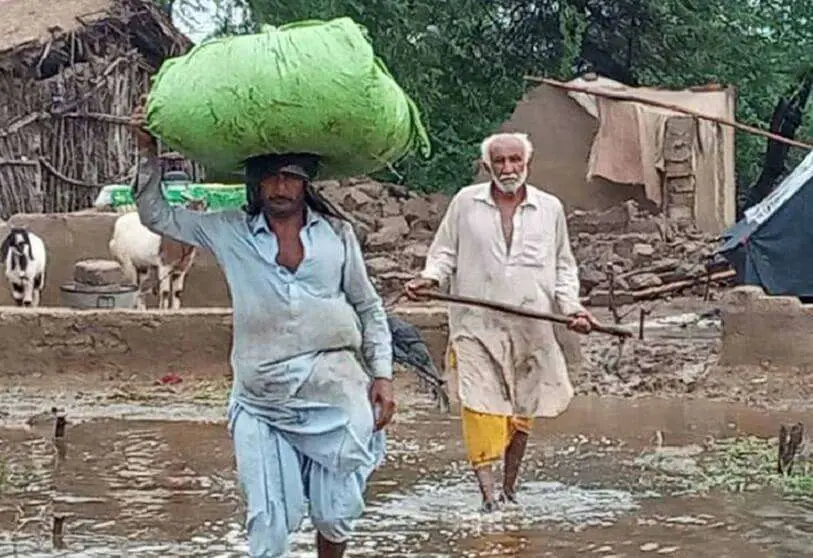Pakistan: UN agencies step up assistance to flood victims

The torrential monsoon rains that have lashed Pakistan in recent weeks have caused devastating floods and landslides, killed more than 1,200 people and injured at least 6,000, destroyed more than 1.1 million homes and critical infrastructure, and have submerged more than a third of the country, affecting some 33 million people, or 15% of the population.
UN agencies on the ground estimate that more than 6.4 million people are in need of urgent humanitarian assistance. The most pressing needs are shelter, clean water and food, as well as health care.
Among the main impacts is the disruption of health services, putting the most vulnerable families at high risk. The World Health Organisation (WHO) warned that under the current conditions it is very easy for the rapid transmission of potentially fatal diseases such as diarrhoea, cholera, dengue fever and malaria.
The UN health agency stressed the urgent need to provide adequate medical care and supplies, including support for mental health care, and reported that its staff on the ground are working to identify and detect possible disease outbreaks for immediate attention, although access to many disaster sites is still very difficult.

The Pakistan Country Director of the World Food Programme (WFP) also highlighted the logistical challenges posed by the floods in getting life-saving assistance to the affected population in a country where many people were in need of help even before the disaster.
"The situation in Pakistan was dire even before the floods with 43% of Pakistanis food insecure. There was a big problem with the region as a whole, including Afghanistan, where the biggest challenge would be to restart agricultural production that would help people feed themselves. WFP was increasingly concerned about how the floods would affect the people of Afghanistan," said Chris Kaye.
UN Refugee Agency (UNHCR) workers in Pakistan said the scale of the disaster facing Pakistanis was unimaginable. "Many are living in the open while waiting for relief that local authorities and the humanitarian community are trying to get to them as quickly as possible. Others are crowded into relief camps or staying with host families," they said.
To help alleviate the most pressing needs, UNHCR is distributing tents, blankets, plastic sheeting, buckets and other household items in Khyber Pakhtunkwa and Balochistan provinces, which are among the worst affected. It is also sending supplies to Sindh and plans to assist some 50,000 households in the worst-affected areas with more than a million basic necessities.
In addition, the agency has mobilised its national workers to provide support to the women and girls affected.
Pakistan is currently hosting 1.3 million Afghan refugees, 420,000 of whom are living in flooded communities.

For its part, the UN Children's Fund (UNICEF) highlighted the impact of the disaster on infrastructure that provides essential services to children, such as education and health, with at least 18,000 schools damaged or destroyed in the country.
UNICEF estimates that 16 million children have been affected and that 3.4 million of them require humanitarian assistance.
The Fund explained that many of the 72 worst-affected districts were already among the most vulnerable in Pakistan and that 40% of children were already stunted before the floods hit.
"Many children are now at greater risk, without homes, schools or even safe drinking water, so there is a risk of many more child deaths, and the situation will continue to deteriorate as winter is only eight weeks away in some parts of the country," it said.
UNICEF said it is providing emergency services and supplies such as safe water, water purification tablets, hygiene kits, medicines, vaccines, therapeutic food for children, pregnant and lactating women, and mosquito nets.
"In the coming days and weeks, we aim to reach children and families first with vital medical equipment, essential medicines, vaccines and safe delivery kits, safe drinking water and water treatment tablets, sanitation supplies, nutritional supplies and mosquito nets. We also want to help children resume learning and will support the government to restore critical services for children as soon as possible," it said.
Last week, the UN launched a humanitarian appeal for $160 million to meet the needs of 5.2 million people affected by the floods in Pakistan.








